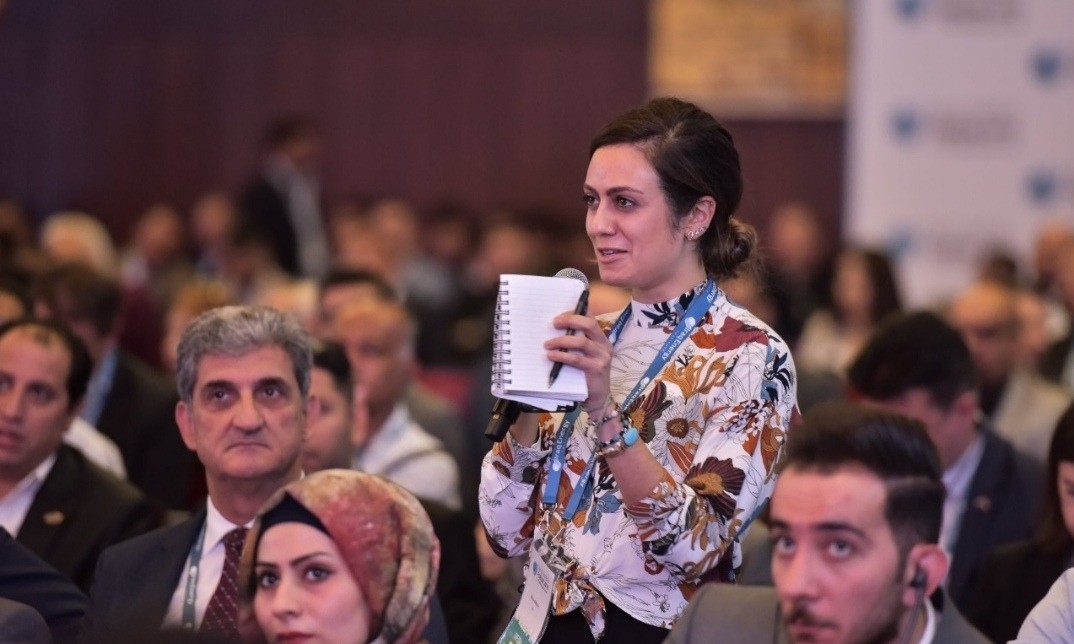Pixelated curtains billow ethereally in the background of Maya Gebeily’s video link, swelling in the Iraqi breeze. Maya is a journalist, a correspondent in the Middle East. She writes about what it’s like for women to have their period in a city under siege, she’s interviewed teenagers who have survived sexual assault at the hands of extremist terror groups, she’s reported on the poverty in a post-IS Mosul.
When we first spoke, Maya was advising me on how to tackle an article I was writing about a shift in citizen politics in Beirut, but latterly she’s been guiding me on all sorts of vague journalism related things.
Foster your network. That, she tells me, is possibly the most important skill to have as a journalist. Maybe what sets Maya apart from many other journalists is her social stamina, her ability to not just establish her charm but to maintain it. She warns it can be draining at first, but often these connections become friends, and people that seem irrelevant may suddenly become crucial.
Maya didn’t fantasise about reporting on the Middle East when she was a child, a chance connection and a desire for change and action drew into the profession. Her degree was in International Politics and Security, she wanted to be a diplomat. “I never was involved in the university school newspaper at all,” she laughs “I barely even read it.”
When people get back to me and tell me, ‘this represents exactly the difficult time that our society is going through’, that’s what makes me feel like my stories matter
Before she graduated, she spoke to a woman that she knew from a thinktank internship she had completed: “I told her ‘I really don’t want to sit in Washington and work for the same thinktanks we all know’. And she said: ‘why don’t you come and work for us?’”. Us being a very small Lebanese English and Arabic website called Now Lebanon. It wasn’t the draw of a high-profile job that diverted her from diplomacy but the tangibility of on-the-ground action.
“I don’t know if I can consider myself a successful journalist” Maya admits. “When people get back to me and tell me, ‘this represents exactly the difficult time that our society is going through’, that’s what makes me feel like my stories matter, or that they’re ‘successful’.”
She spends a lot of time trying to re-create the experiences of the people she interviews, “but it can be quite draining.” She agrees that one of the unhealthiest things that you can do is expose yourself to vicarious trauma by reliving the experiences of the people that you interview, “but that’s exactly how I write. I can’t not do that, that is the process.”
Maya writes for Thomson Reuters in Beirut, but she hasn’t always worked at prestigious outlets. Not long after she started her career at Now Lebanon, she worked as a freelance reporter in Beirut. She tells me freelancing is incredible work, but hard-going: “Don’t take rejections to heart, there will be many and it’s not a reflection on you.”
I hope that one day I’ll be able to make journalism half as poignant and moving as Maya, and perhaps a journalism student will bother me endlessly too.

